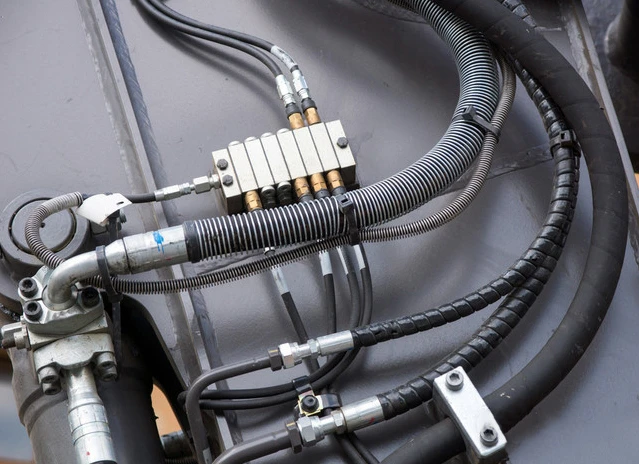Navigating the world of hydraulic hoses can be daunting, especially with their pivotal role in ensuring the smooth functioning of hydraulic systems. Each type of hydraulic hose is crafted to meet specific demands, which makes it imperative to understand their variants, materials, and applications. This knowledge ensures not just system efficiency but also enhances safety, longevity, and cost-effectiveness.
One of the most common types is the steel reinforced hydraulic hose. Known for its durability, this hose is reinforced with high-tensile steel wire layers, giving it superior resistance to pressure. Industries such as mining and construction favor steel-reinforced hoses due to their ability to operate under extreme pressures, and their resistance to significant external physical stress. Their robust construction also minimizes risks of leaks, thus maintaining system integrity – a critical factor for operations in high-stake environments.
Textile reinforced hydraulic hoses offer a compelling alternative where flexibility and moderate pressure resistance are required. These hoses use woven fabric reinforcements instead of steel wire, making them lighter and more pliable. This flexibility makes them ideal for applications where tight hose routing is necessary. They are often used in machinery and equipment that do not demand high pressure but require a degree of manoeuvrability and vibration absorption, ensuring the longevity of connected components by minimizing wear.
Thermoplastic hydraulic hoses, made from high-strength synthetic materials, are gaining popularity due to their versatility and chemical resistance. Unlike rubber hoses, thermoplastic variants maintain their integrity when exposed to a broad range of chemicals and temperatures. Their non-conductivity also makes them suitable for applications in electrical hazard areas. Additionally, these hoses can be fabricated in vivid colors, enhancing safety and identification while improving aesthetic appeal in installations that demand clarity in hose recognition.
Specialty hydraulic hoses, designed for critical and unique applications, redefine how hydraulic systems operate in benchmark-specific environments. Hoses like the PTFE (Polytetrafluoroethylene) helix hose are integral in food processing and pharmaceutical sectors, where purity and cleanliness are paramount. Offering a non-reactive surface, these hoses do not contaminate or alter the compositions of materials passed through them. Their usage spans industries where material integrity is as crucial as the robustness and flexibility of the hose itself.hydraulic hose types
Despite each type’s unique strengths, selecting the correct hydraulic hose involves a precise understanding of STAMPED – Size, Temperature, Application, Material, Pressure, Ends, and Delivery. Studying these parameters helps specify a hose that matches the operational demands perfectly, averting costly downtime caused by incorrect installations or premature failures.
Furthermore, engaging with a certified supplier ensures not just product quality but access to expert knowledge and firsthand experience. Suppliers equipped with ISO and SAE certification indicate adherence to stringent manufacturing and quality assurance processes. This assurance builds trust and provides peace of mind, knowing that the products used have met rigorous standards and are constructed to withstand challenging conditions.
Proper maintenance and timely inspection of hydraulic hoses cannot be overemphasized. Regular checks for signs of wear, leaks, or abrasion can prevent minor issues from escalating into catastrophic failures. Engaging with maintenance schedules that incorporate expert inspections can identify problems before they manifest fully, ensuring safety and minimizing unexpected operational halts.
Ultimately, navigating the complex landscape of hydraulic hose types is about marrying technical expertise with pragmatic application insights. With ongoing advancements in material science and engineering, the future points towards even more resilient and specialized hoses. Whether one is confronted with high-pressure demands or environments requiring exceptional chemical resistance, understanding the specific needs and capabilities of each hydraulic hose type remains an essential asset in achieving operational excellence.
OUR LATEST NEWS
Strict quality control strict production team to ensure stable products quality. Scientific personnel management, efficient production arrangements to ensure our timely delivery.























